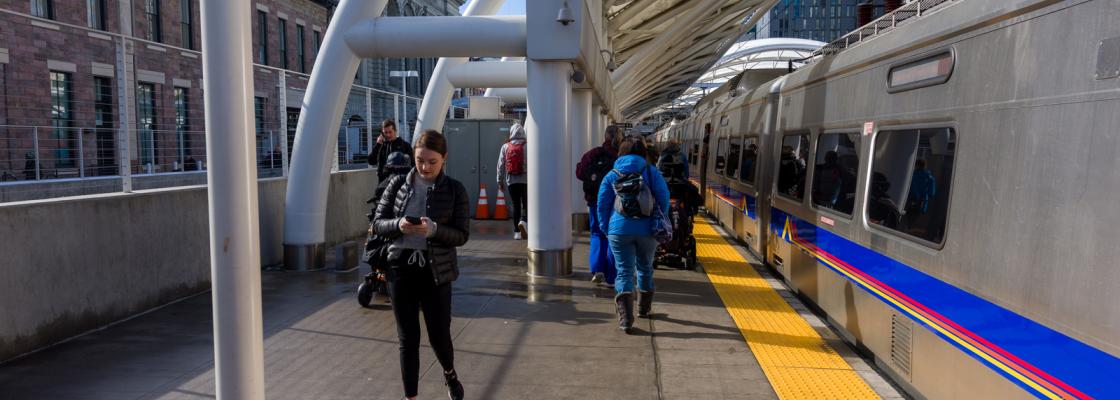
Transportation demand management refers to a suite of strategies to help travelers use the transportation system in a more efficient and sustainable way. The strategies include mobility services, technology, transportation infrastructure, public policies, employer programs, parking management and education and outreach campaigns.
The primary purpose of transportation demand management is to decrease the number of people driving alone on the roadway system to reduce traffic congestion and greenhouse gas emissions. Transportation demand management also serves to increase affordable, safe and reliable transportation options for all travelers. Transportation demand management-related activities help get the most out of transportation infrastructure and services by making lower-cost, higher-efficiency transportation options accessible, comfortable and easy to use.
Transportation Demand Management Strategic Plan
DRCOG staff, in partnership with its member governments and key stakeholders, developed a Transportation Demand Management Strategic Plan for the region.
The plan provides the Denver region with a framework to improve efficiency and mobility for travelers of all ages, incomes and abilities by identifying actions to enhance and expand sustainable, multimodal travel choices, reduce traffic congestion and provide air quality benefits.
DRCOG engaged stakeholders from across the region to inform development of the plan, including facilitating six workshops over the project timeline. Stakeholders included regional transportation partners, regional air quality partners, academia, community advocacy groups, environmental justice partners and industry partners. Social media, online comment cards, press releases and traditional media were also leveraged to assure robust and meaningful input.
The Transportation Demand Management Strategic Plan:
- Examines the current state of transportation demand management in the region, including funding sources and policies.
- Identifies and encourages a suite of transportation demand management strategies, including infrastructure, mobility services, parking and pricing, land use, incentives, and marketing and education.
- Supports statewide greenhouse gas emissions reduction goals.
- Envisions a safe, seamless and sustainable travel network throughout the region.
The plan was completed and approved by the DRCOG Board of Directors in December 2023.
In addition to the plan, staff developed a transportation demand management toolkit as a technical resource for member governments, developers and other practitioners looking to implement sustainable transportation strategies. For more information about transportation demand management, review:
